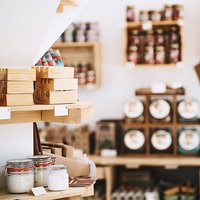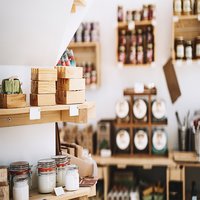Use of Unpacked Food and Reusable Solutions Slowed Down
Research group PuR investigated the effects of the Corona pandemic on packaging waste in Germany

Research group PuR investigated the effects of the Corona pandemic on packaging waste in Germany

The cardboard box from the last pizza order, the coffee in the disposable cup or the plastic film around the cucumber: Each year, a person in Germany produces an average of 227.5 kilograms of packaging waste – and the trend is rising. The Corona pandemic has further intensified the situation: instead of going out to eat, consumers order from delivery services, most of which deliver the food in disposable packaging. For hygiene reasons, many cafes and restaurants no longer accept reusable packaging such as reusable cups brought in by their customers. This also has an impact on waste management, because the packaging and containers that are produced also have to be recycled or disposed of.
The junior research group "PuR – Precycling as a Means of Resource Efficiency. Systemic Solutions for Packaging Prevention" interviewed seven stakeholders from industry, consumer education and waste management. They then developed an online survey aimed at representatives of the public waste management sector. In the article "Way out of the one-way? Effects of the COVID-19 pandemic on the generation of waste from packaging in Germany," the researchers from the Technische Universität Berlin and the Wuppertal Institute summarised their results and analyses. Dr. Henning Wilts, Director of the Circular Economy Division at the Wuppertal Institute, and Jennifer Schinkel, Researcher in the Research Unit Material Loops at the Wuppertal Institute, are part of PuR and co-authored the article.
The researchers found that the Corona pandemic is slowing down the prevention of packaging waste and the use of more reusable solutions. For example, one zero waste shop reported that consumers were increasingly turning back to single-use plastic packaging because they were concerned, for example, about non-packaged food being touched by potentially Corona-infected customers or staff. Plastic-packed food, on the other hand, they considered to be more hygienic and safer. "If consumers buy more packaged fruit and vegetables again in the long term and order food in disposable packaging, this could endanger precycling," explains Henning Wilts. That is why, according to the authors, it is particularly important to bring unpackaged products or reusable packaging back into focus so that there are sustainable alternatives for consumers. This offers the opportunity to fundamentally rethink resource-intensive production and consumption patterns and to develop and establish sustainable systems.
The article is published online in the journal Sustainability Management Forum and is available free of charge at the link below.
